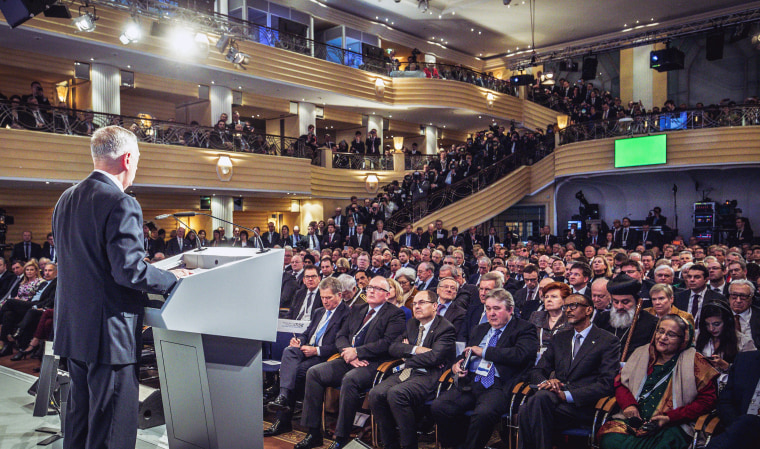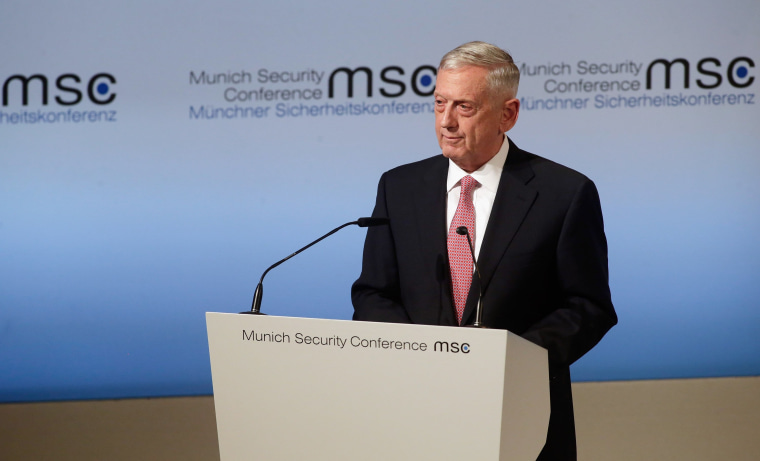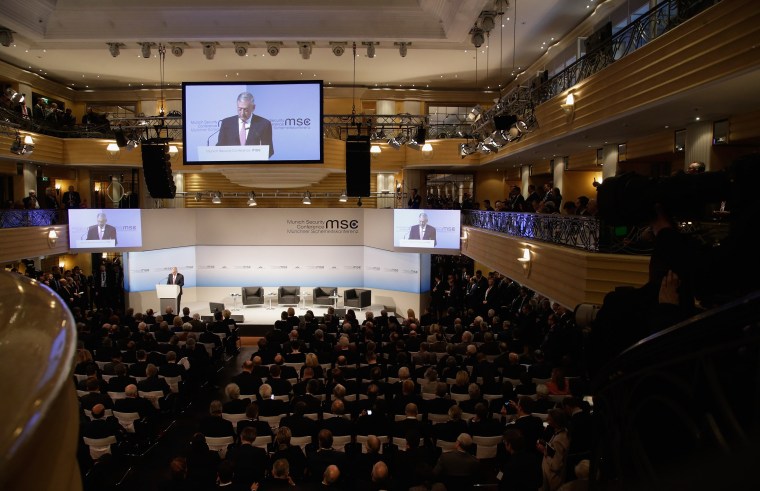MUNICH - U.S. Defense Secretary James Mattis, in his debut trip to Europe, warned of an "arc of instability" on Europe's periphery and told nervous allies that the United States would stand with NATO partners to confront shared threats.
Mattis' remarks to the Munich Security Conference came as Europe fears Trump could retreat from traditional U.S. leadership as the continent grapples with an assertive Russia, wars in eastern and southern Mediterranean countries, and attacks by Islamist militants.
Mattis, in carefully measured remarks, said the U.S. and its European allies had a shared understanding of the challenges ahead.
"We all see our community of nations under threat on multiple fronts as the arc of instability builds on NATO’s periphery and beyond," said Mattis, a retired Marine general.
He later added: "American security is permanently tied to the security of Europe."

Trump alarmed allies during his campaign for office by breaking with traditional Republican views on the transatlantic relationship, even expressing admiration for Russian President Vladimir Putin.
Mattis, however, has spoken out strongly against Russia on his first European visit and said after talks with NATO allies in Brussels on Thursday that he did not believe it would be possible to collaborate militarily with Moscow, at least for now.
Related: Mattis to NATO: Increase Military Spending or Else
European intelligence agencies have warned that Russia is also seeking to destabilize governments and influence elections across Europe with cyber attacks, fake news and propaganda and by funding far-right political parties.
In one incident, Lithuanian prosecutors have opened a criminal investigation into a false report of rape by German soldiers stationed there on a NATO mission to deter Russia.
Mattis, without explicitly citing the case, rallied to the defense of German forces as he spoke in the German city of Munich. "I have great respect for Germany’s leadership in Europe – and for the ethical performance of your troops on the battlefield," he said.

U.S. intelligence agencies concluded last year that Russia hacked and leaked Democratic emails during the election campaign as part of an effort to tilt the vote in Trump's favor.
Trump is wrestling with a growing controversy at home about potential ties between his aides and Russia, which he dismissed on Thursday as a "ruse" and "scam" perpetrated by a hostile news media. Mattis remarks came a day before U.S. Vice President Mike Pence will address t
he Munich conference, also seeking to soothe allies unnerved by his boss's statements on Russia and NATO.
Related: Germany's Defense Minister: Trump is Committed to NATO
Pence will say that Europe is an "indispensable partner" for the United States, a senior White House foreign policy adviser told reporters.
Mattis told a crowd that included heads of state and more than 70 defense ministers that Trump backed NATO -- but also saw the need for change.
The Pentagon chief warned NATO allies on Wednesday that they must honor military spending pledges to ensure the United States does not "moderate" support for the alliance.

"It is a fair demand that all who benefit from the best alliance in the world carry their proportionate share of the necessary costs to defend our freedoms," Mattis said on Friday.
Europe's low expenditure has long been a sore point for the United States, which puts up 70 percent of alliance funds. But Trump has made change a priority, saying allies have "been very unfair to us" for not spending more.
"President Trump came into office and has thrown now his full support to NATO. He too espouses NATO's need to adapt to today's strategic situation for it to remain credible, capable, and relevant," Mattis said.
